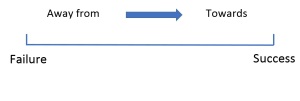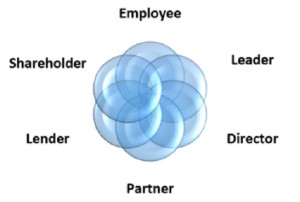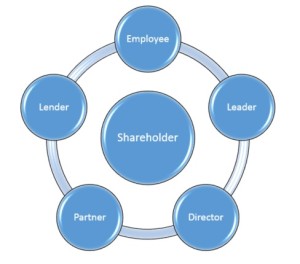
This post follows a previous one about living in the haze https://pairbv.com.au/living-in-the-haze/. I had every intention to write this one sooner but I just wasn’t ready.
I will start by saying that exiting the haze does not mean you have to give up enjoying life. In fact the opposite occurs. The more you decide to live life on your terms and within your means, the more you will enjoy it. This includes striving for things or experiences that others don’t see as important. It also doesn’t mean you should play small with your career or business goals as long as your health and relationships don’t suffer as a result.
The measure of an authentic and purposeful life should not be the amount of money and things you have, it should be measured by the quality of your relationships and the impact you have on others. Your own happiness will be more positively affected by how you feel, rather than what you have. Having nice things can make you feel good if you have worked hard for them and they are what you really want. Constantly buying new things (especially those you don’t really want or need) can make you feel good too, but like drugs it is often short lived and followed by a downer. Self-esteem and long-term happiness come from knowing you’re doing what’s right for you and others. This includes making the right choices about the things you have and how you allocate your time.
I decided the best way to share my strategies for exiting the haze is to list them. I would like to say before you read them that the haze will always be around you. It will live inside many of your friends and family, you will see it in people’s eyes when you walk down the street and every single time you turn on the television. I am not sure whether it is possible to fully exit the haze as I am not there yet and have to be conscious of it every day when I make decisions.
Here is my list:
- Put time aside for your most important relationships. Nurture and appreciate them. Avoid becoming complacent as none of us know how long we have to live.
- The most important relationship is the one you have with yourself. How do you feel when you look in the mirror every day? Proud and focussed or disappointed and unsettled?
- Make your health a priority, both mental, physical and spiritual (This does not have to relate to religion)
- Strive every day to help more people. The help you give can take many forms and doesn’t have to involve money. It doesn’t have to be a massive gesture either, as this is often not possible. Here are a few ‘small’ help ideas that you can do every day:
- Be genuinely interested in others and be empathetic to their situation
- Respect other people and their differences. Every human being will feel happier if they know they are accepted by others. You may also find that they in turn accept you more as a result.
- Look for things to do for others, especially if you are feeling a little low yourself. I promise it will make you feel immediately better
- Help someone cross the street or get something off a high shelf at the supermarket they can’t reach (there is a limitless number of things like this that you can do every day)
- Stand up for someone who needs support.
- Live within your means. If you absolutely want something or to do something you really can’t afford, you should:
- Increase your means (income and/or investments)
- Sell things you don’t want any more
- Save for it.
- If you do borrow money to buy a car, house or something else commit yourself to a plan to pay the entire loan off within a realistic timeframe – and stick to it! It is a great feeling to know that with every payment you own a little more of your asset.
- Don’t fall into the trap of what I call ‘easy money’ as it may be easy to get but it is typically very expensive and there is usually a catch. The cost of the money may be hidden in the price or the fact that the lender knows most people are undisciplined and won’t make all their payments on time. Easy money includes:
- Credit cards
- Personal loans, especially with high interest rates
- Finance loans with a balloon. You may find yourself in a painful position where the value of your asset is less than what you owe.
- ‘Interest free’ payment offers (they are actually finance agreements and you will pay very high interest if you don’t make all your payments on time).
- Borrowing money from friends or family. Don’t do this unless it is absolutely necessary and the repayment commitment is easily achievable. You also need to have the talk about relationships being more important than money and a plan to handle any unforeseen repayment issues so that expectations are realistic and the loan does get paid back in full. Most importantly so the relationship doesn’t suffer as a result of the loan.
- Choose your own authentic path in life. This includes:
- Doing more of what you enjoy the most (it will also often be what you are best at doing)
- Spending more time with those you really want to spend time with
- Clarifying how you help people/add value to the World? I believe this is your true purpose. This previous post may help you https://pairbv.com.au/does-success-come-from-focussing-on-failure-or-success/. Doing it every day and as much as possible.
- Clarifying the work environment suits you best:
- Job
- Private
- Public business
- Not for Profit
- Your own business
- Commercial
- Sole owner
- Partnership
- Not for profit
- Commercial
- Job
- Let go of others’ expectations when it relates to how you live your life unless meeting their expectations is an important part of achieving your goals (eg: your employer, manager, coach, parent)
- Stop trying to please people for the wrong reasons
- Do what’s right:
- This is often not the easy option
- Stay true to your values, even if it hurts you or others in the short term
- Keep your focus on the long term and don’t make decisions from a ‘survival’ mentality. I say survival mentality because our situation is usually not as bad as we might think it is. True survival is when your life is under threat. In the western world we rarely miss a meal or can’t get fresh water to drink. We usually have a warm bed to sleep in and don’t have wild animals or gun/knife wielding militia threatening to kill us. If you are experiencing fear or anxiety around a situation my post https://pairbv.com.au/face-reality-dont-hope-or-wait/ may help you to move forward
- Think of the effect on others not just yourself when you make decisions (you only get one reputation and it is amazing how people will keep turning up in your life)
- Don’t expect other people to be responsible for your life or give you what you want. Why?
- You will not be in control of your own destiny
- This creates expectations with others and a perception or reality that you owe them something
- You only deserve what you create and appreciate
- If you have something that still works fine don’t replace or upgrade it just because you can afford it, or worse increase your debt to buy it. E.g. House, car, phone, television.
- Look after your things and fix them if possible. This is far more enjoyable and satisfying than buying something you don’t need, often to impress others (a good indicator is an uncomfortable feeling in your stomach – see previous post https://pairbv.com.au/living-in-the-haze/
- The exception here is when you want something that forms part of a passion. You may love travelling, cars, golf, boats, motorbikes, renovating houses…the list is endless. If it is your passion, save or increase your income until you can afford to get what you really want and enjoy it! I find if I do this the first time I don’t always want to upgrade. This is more cost effective in the long run as changing over is costly.
- Create and stick to an investment plan.
- Get help from others that know more than you because they have done what you want to do or have a proven track record of helping others with similar goals to you (not people that purport to know more but they only know theory).
- Build a financial buffer for unforeseen problems or opportunities (as a guide, 3 months of your net income as a minimum). It is wonderful to wake up every day knowing that you can pay for unforeseen events when they occur – and they do!
Living in the haze can make you tired, unfulfilled, depressed and lower your self-esteem. It can cause you to constantly react to external influences such as other people’s judgement and opinions. It can be extremely costly to your health, relationships and finances.
You need strong reasons to exit the haze. My most important reason was to be a positive example for my kids and show them it is possible. It is not an easy path in these times of excess and consumerism but it is a very worthwhile path.















 There are constant risks and challenges in life and business. Risks can be real or perceived. They can have varying levels of probability and consequence.
There are constant risks and challenges in life and business. Risks can be real or perceived. They can have varying levels of probability and consequence.